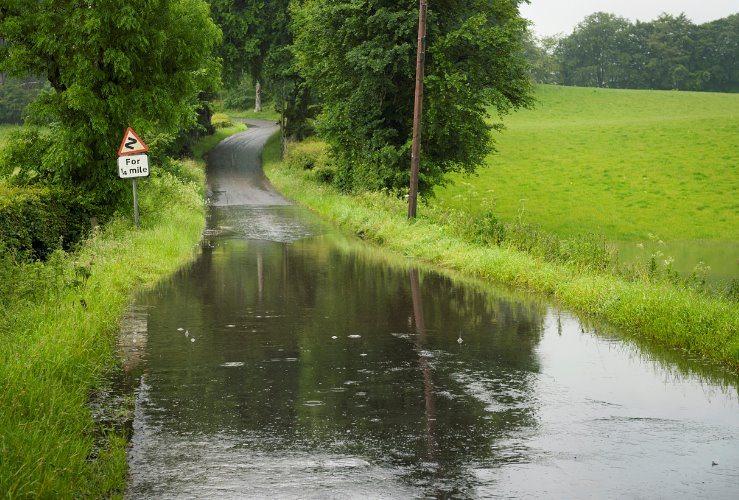
As motorists, how can we better prepare for extra water on the roads - or for flash flooding - as autumn sets in?
Recent flash floods in Wales caused rivers to burst their banks, flooding homes and leaving many without power.
The worst floods in 30 years have also sadly taken a life. 30 flood warnings and 40 alerts were put in place across Wales.
In terms of transport, there were many train cancellations. One passenger train had to be rescued due to a flooded line.
And on the roads, there was the expected chaos, with some routes rendered impassable by high water levels.
The colder, wetter weather of October often brings with it severe storms and flash flooding. But as motorists, how can we better prepare for extra water on the roads - or for flash flooding?
Flooding
Alongside heavy rain, flooding can be caused by blocked or burst water mains, and tidal changes. As far as the Environment Agency is concerned, sea or river related flooding is relatively straightforward to predict. However, surface water from torrential rain or burst water mains can be much more tricky to second-guess - and is often extremely localised.
Your car and flooding: tips
- If you know flooding is likely, move your car to higher ground in order to prevent water damage. Electrical systems, including air-bags, can be severely damaged by water.
- Keep your headlights on if visibility is less than 100m.
- Consider using fog lights in severely low visibility.
- Leave a bigger gap between you and the vehicle in front, giving you more time to stop.
- If you breakdown don’t prop open your bonnet, as rainwater can damage the electrics of your vehicle.
- Aquaplaning: if you feel it in your steering, take your foot off the accelerator and reduce your speed steadily.
Standing water
- Avoid it where possible.
- Water more than 10cm deep should be avoided. Fast moving water could sweep your vehicle away.
- Avoid making a bow wave as you drive by keeping your speed down.
- After leaving a flooded area, check your brakes are working properly.
- Take care using fords. With extra rain, it may not be safe to cross and you could lose control of your vehicle.
What if I get stuck in flood water?
In most cases it’s best to wait where you are and request help - rather than leaving the vehicle.
Keep your speed down, because:
- It will prevent creating bow waves in the water
- It will minimise the chances of splashing cyclists and pedestrians
- It decreases the chances of water getting into your engine, which could be very expensive to resolve.
Breakdown rescues during floods
Naturally, it's important to have breakdown cover so you can get help from a professional breakdown team if something goes wrong with your car in heavy rain or floods.




